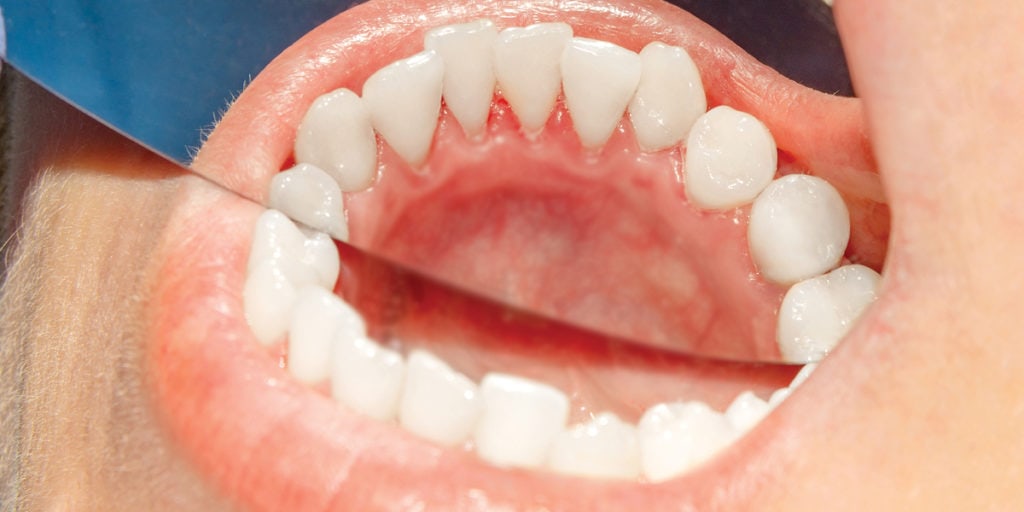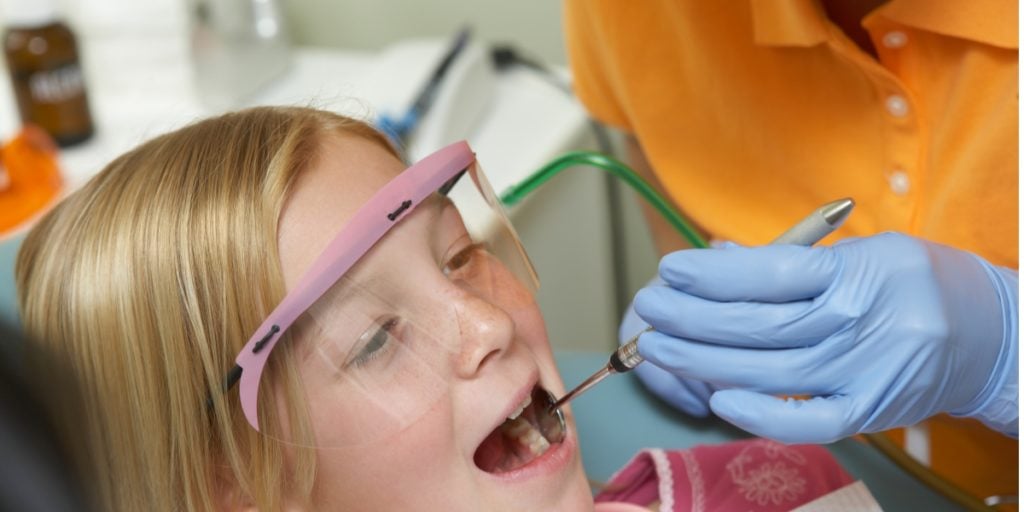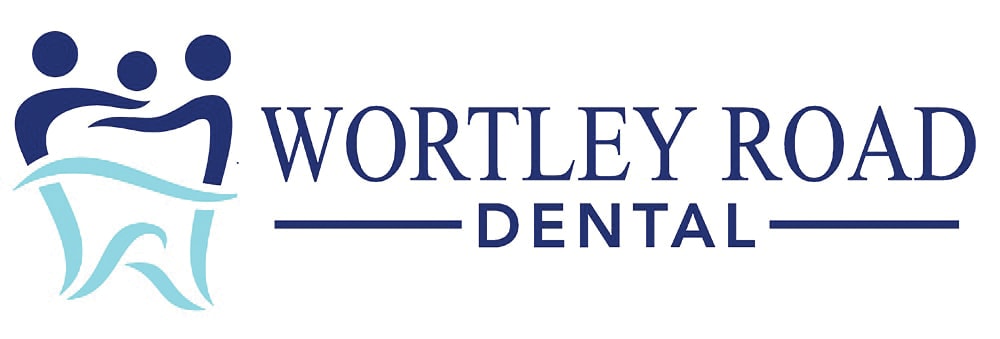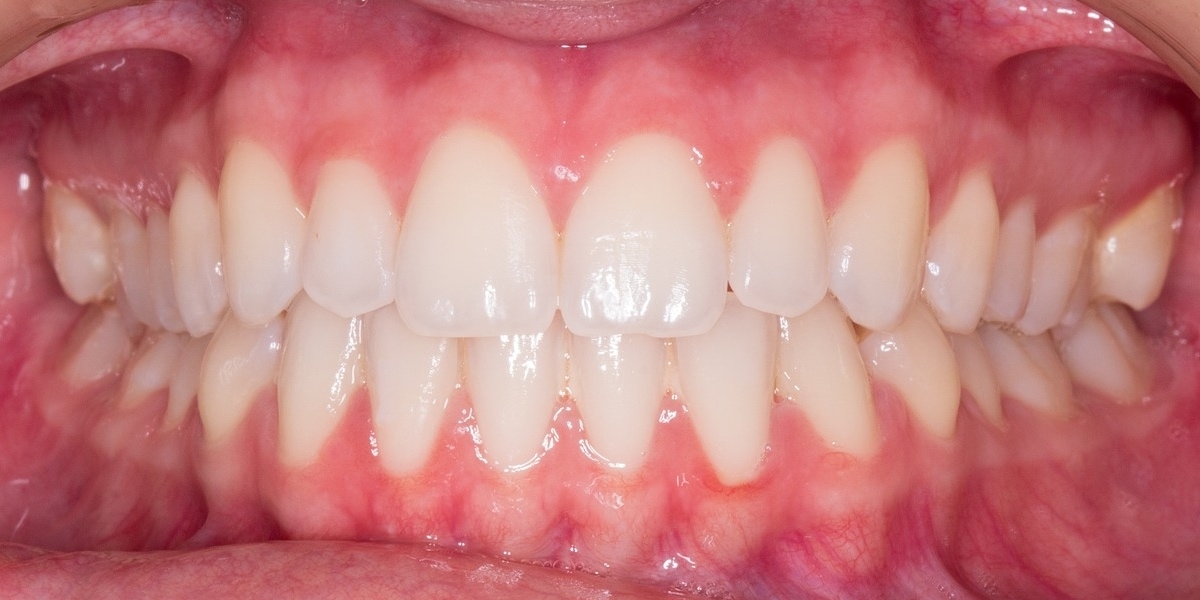Before, During, And After Gum Graft Surgery: All You Need To Know

Do you know 4% to 12% of adults get affected by gum recession? So, if you’re dealing with receding gums, you’re not alone. It is often difficult to detect the damage at an early stage as gum decline is a gradual process.
However, advancements in the world of dentistry have made it possible to prevent and control the effects of gingival recession. Gum graft surgery is one of the most effective procedures to protect your teeth from decay and receding gums.
Don’t let the word “surgery” haunt you, as gum grafting is not as worse as it sounds. It doesn’t only fix the receding gums but also helps to improve your smile.
What is gum recession?
Gum recession is a gradual process that exposes the root of your tooth. It begins when the gum tissues surrounding your teeth start wearing away. The exposure to bacteria makes your tooth and the root tip prone to decay.
As a result of receding gums, the bone tissue pulls away from the tooth. You may fail to notice any signs of gingival recession unless the damage takes place.
According to London dentists, when the gum line pulls away from the teeth, it exposes your tooth to dentin hypersensitivity. In addition,it leads to the formation of gum abscess and makes you prone to dental abrasion.
Causes of gum recession
Many people don’t catch the signs of damage because the effects of gum decline take time to appear. However, it is important to understand why your gums start receding. It may help you to prevent the symptoms of decay and potential tooth extraction.
It is good to take care of your oral health and brush your teeth twice a day. But, “going hard” on the teeth can hurt the gums rather than protecting them. Long-term enthusiastic tooth-brushing causes gingival recession.
Wearing braces for an extended period also contribute to the damage. Having thinner gum tissue is another factor that may lead to receding gums.
Gingivitis is a milder gum disease, which also causes the bone tissue to pull away from the teeth-line. Gingivitis is reversible with better oral hygiene. However, the leading cause of gingival recession is periodontal disease, also called gum diseases.
It’s the advanced stage of gingival infection. Gum disease develops because of the plaque buildup in the mouth. Your mouth and teeth become inflamed and in some cases, bleed profusely. When left untreated, declining gums may lead to tooth decay and extraction.
What is gum graft surgery?
Gum grafting, or gingival grafting, is a dental procedure to fix receding gums and other advanced periodontal diseases. During the minimal surgery, the endodontist removes a soft gum tissue from the patient’s mouth and graft it over the receding gum lines. It helps to rebuild the gum from where it has receded.
People opt for a gum tissue grafting for receding gums. It helps prevent further damage and potential periodontal diseases. Some people undergo gum grafting for cosmetic reasons, such as for an attractive and gum-less smile.
Gum grafting procedure
There are three main types of gum grafts that orthodontists perform for fixing the receding gums. The dentists decide what type of gum graft you need depending on the severity of the damage. The dentist will discuss the possible treatments with you before making the final decision.
Before the procedure, the doctor administers anesthesia on the affected gum. Once the patient feels comfortable, then the dentists lifts and cleans the above gum line before procedure.
1. Connective tissue graft
A connective tissue graft is the most common gum grafting method. During the surgery, your dentist cuts a flap at the mouth roof, i.e., the palate. He then takes tissue from underneath the top layer of the flap, known as subepithelial connective tissue.
In the next step, the dentist stitches the tissue to the exposed tooth root. He also stitches the flap back down from where the graft was taken.
2. Gingival grafting
Gingival grafting is quite similar to connective-tissue graft as it also involves the tissues from the roof of the mouth. However, in gingival grafting, the dentist removes tissue directly from the roof of the mouth rather than making a flap. He then attaches the gum to the exposed roots.
The graft and the source of the tissues are secured with stitches. The procedure ends with the sterilization of the grafted gum with salted water. Gingival grafting is suitable for people with thin gums. Grafting of tissues helps to enlarge the gums.
3. Pedicle grafting
Pedicle grafting is a specific gum grafting method for people who have excessive gum tissue surrounding the exposed tooth. During the procedure, the dentist grafts the tissue from the gum surrounding the affected tooth.
The dentist partially cuts the flap, i.e., a pedicle, keeping one edge of the tissue attached. Your London dentist then stretches the gum over or down to cover the exposed area of the tooth. In the end, the dentist stitches the graft to keep it secure.
Recovery Period
Gingival crafting helps to reverse the effects of receding gums. The effectiveness of gum graft surgery depends on the expertise of the endodontist as well as the patient’s suitability with the treatment. Poor oral hygiene and unhealthy habits, such as smoking tobacco, helps the disease to resurface even after a successful surgery.
So, make sure to follow your dentist’s recommendations and guidelines about post-operative care. For instance, the dentist may recommend you to:
- Avoid brushing and flossing at the grafted gum area.
- Don’t eat soft or cool foods, such as eggs, pasta, yogurt, and ice-cream
- Avoid hard-to-chew foods
- Abandon smoking
- Use prescription medicines, such as antibiotics, to prevent the growth of bacteria or infection
Final Thoughts
Receding gums take time to appear and if left untreated can cause serious dental issues. Not to mention, your oral health has a great impact on your overall health and well being. Contact your London dentist for safe gum grafting to reverse gingival recession.

Choosing a dental clinic can be challenging, especially when you have no idea what you are looking for. Look no further than Wortley Road Dental Clinic if you’re looking for a new dental clinic in your area. To help you decide, here are the questions you can ask them.
What to ask
One of the most brilliant things you can do for your dental health is to be an active participant in your care. This means asking questions and getting all the information you need to make informed decisions about your oral health.
1. Do you offer a wide range of services?
Dental clinics should provide a variety of dental services. It will be best to find a doctor who can provide treatments other than those you currently need. This will save you time. In addition, you will not have to find a new dentist if your dental needs change.
2. Are your dentists experienced?
When it comes to oral health, nothing beats experience. Expert dentists will provide more effective and desirable results. Moreover, you need to find someone who will offer accurate diagnosis and appropriate solutions to your dental problems.
3. How accessible is your dental clinic?
Being busy can make it hard to schedule a dentist appointment. Therefore, choose a clinic near your residence or workplace. In this way, you can maximize your time without sacrificing other priorities.
4. Can I use my insurance policy to pay for your dental services?
You should verify that the dentist on your list accepts your dental insurance. You should also ask them about their payment policy and structure. By doing so, you will know ahead of time what the billing procedure will be if you decide to seek care from that dentist.
Contact us today
Our dentists understand that dental visits can be stressful, but we want you to feel comfortable and relaxed. Whether you need a routine cleaning or more extensive care, schedule an appointment with your London dentist.
Ensuring Your Family’s Dental Health. Book An Appointment With Us!
CALL (226) 242-5271
Book an appointment now or fill out the form below



